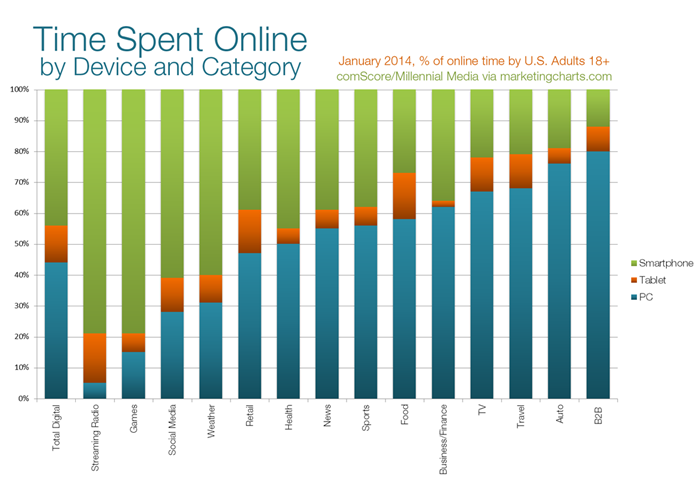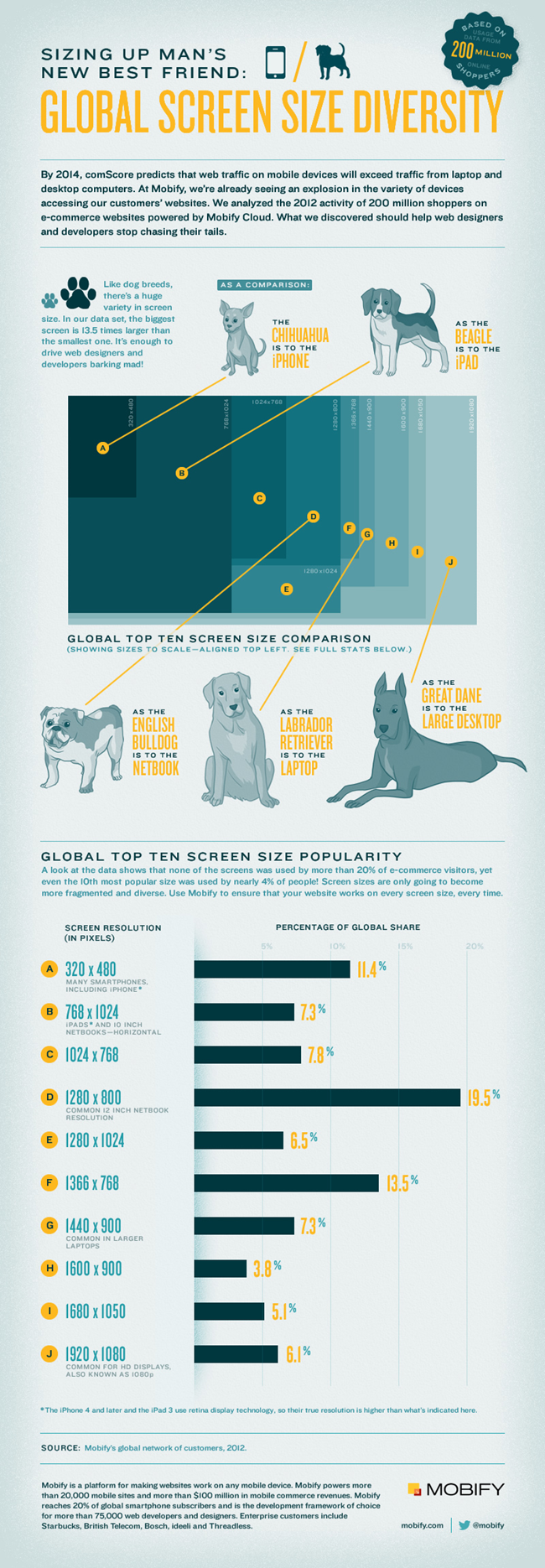Are All Your B2B Digital Marketing Eggs in the Mobile Basket? + Infographic
You might have been led to believe the age of the PC is over and you need put all your B2B digital marketing eggs into the mobile basket. But wait – not so fast – says the data.
Don’t Move All Your B2B Digital Marketing to Mobile Just Yet
Despite predictions that mobile would obliterate desktop and laptop devices for all types of internet use, internet users once again send the message that we’re living in a multi-device digital world. Both retail and B2B marketers need to be aware of the types of devices their buyers are using to research products and services, do comparative shopping and make purchases.
Are consumers and B2B buyers using mobile devices to shop? Yep, definitely. But whether they are spending the most time using mobile devices, rather than desktops, laptops or tablets varies widely across categories.
While it’s not optional for mobile marketing to be included in the retail or B2B digital marketing playbook, it might be too soon to put the majority of marketing resources toward mobile development.
A quick look at the time spent online by U.S. internet users 18 and over shows that B2B digital marketing can’t be limited to mobile devices. PC use is the equal of mobile use for digital overall, and in many categories, consumers are more likely to be using desktops and laptops to do product research, shopping or price comparisons than mobile devices.

At one end of the spectrum, you have gamers, music, social media and weather being accessed mostly through mobile and tablet devices. However, move to retail sites and on through to food (restaurants) and B2B web sites, and you find that users prefer to use desktops and laptops to conduct research, compare options and prices and make purchases.
All Devices are Not Created Equal
Some of the reasons people use different types of devices across categories include availability of internet connections via LAN, WAN, Wi-Fi, etc., concerns about data security, familiarity – and for some, it might come down to little more than screen size.
Screen Size Matters
This Mobify infographic clearly illustrates the wide variety of screen sizes that today’s web developers must take into account when doing site design and planning the buyer’s journey through a business web site. Desktop and laptop sites have a clear advantage over their tablet and smartphone rivals when B2B buyers or retail shoppers want (or need) to clearly view what they are shopping for, will be reading PDF white papers or doing research and comparing technical specs and other descriptions on content-heavy sites.

Key Device Differences for Marketers
Obviously key for marketers is to understand how search works differently across devices. For instance, Google listings may appear higher in mobile search results than for searches conducted on non-mobile devices, and domains with local intent are more likely to appear. The takeaway? Mobile search engines assume that some, if not a majority of, mobile searches are being conducted with the intent to take fairly immediate action.
Businesses that want to attract local shoppers to brick and mortar locations as well as their e-commerce site may consider investing in mobile pay per click or retargeting ads that send searchers to local stores, vs. their e-commerce site as part of their overall B2B digital marketing strategy.
A second key difference concerns intrinsic functionality. Namely, mobile devices are often programmed to auto-complete and auto-correct. Plus, while people step away from desktops and laptops, many consumers are connected and logged in via smartphones virtually 24 hours a day. Scrolling and browsing is also very different for PC users than for mobile device users, so sites need to be designed differently in order to help the searcher get to the information they want efficiently and quickly.
Many mobile devices also lead users directly to purchasing, downloading and other instant-action options. While the goal of optimization is often to drive searchers to landing pages and a multi-page journey on desktop or laptop, you may want to simplify the buying journey when it comes to your mobile site and take searchers to a page that provides them with an immediate option to book, call, reserve, or buy.
Check out this econsultancy.com article How do mobile and desktop SEO differ to delve deeper into the differences between the user experience on mobile vs. desktop or laptop devices.










